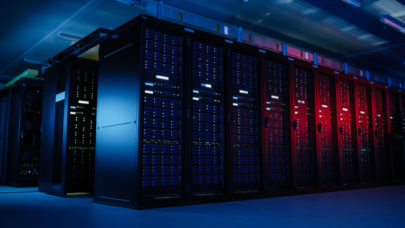
Three Universities Team for NSF-Funded ‘ACES’ Reconfigurable Supercomputer Prototype
September 23, 2021
As Moore’s law slows, HPC developers are increasingly looking for speed gains in specialized code and specialized hardware – but this specialization, in turn, can make testing and deploying code trickier than ever. Now, researchers from Texas A&M University, the University of Illinois at Urbana... Read more…

NEC’s Vector Supercomputer to Power Japan’s ‘Next Earth Simulator’
October 13, 2020
The Japan Agency for Marine-Earth Science and Technology (JAMSTEC) engages in a wide variety of research and development projects to support Japan’s maritime Read more…

NEC Aurora Vector Engine Targets Data Privacy
March 12, 2020
In the banking, financial services and insurance industries, data governance is an eternally daunting challenge, and now data management consultancy Vaco and NE Read more…

German Aerospace Center Debuts AMD-Powered CARA Supercomputer
February 18, 2020
The German Aerospace Center (DLR) launched its new high-performance computer CARA (Computer for Advanced Research in Aerospace) at TU Dresden on February 5, 2020. Built by NEC and powered by first-generation AMD Epyc 7601 processors with a budget of more than 20 million Euros, CARA will... Read more…

SC19: Welcome to Denver
November 17, 2019
A significant swath of the HPC community has come to Denver for SC19, which began today (Sunday) with a rich technical program. As is customary, the ribbon cutt Read more…

New Haswells Spark Open Season for HPC Systems
September 15, 2014
What do you get when you add more cores, improved memory bandwidth, and a notable uptick in performance out of a freshly-launched chip? One hell of a lot of ann Read more…

NEC’s New Wave of Japanese Vector Supercomputers
May 29, 2014
We’ve been covering the momentum in Japan toward exascale computing for some time, but amidst the noise, have also been watching steady progress in Japan’s Read more…

Details Emerging on Japan’s Future Exascale System
March 18, 2014
The Big Data and Extreme Computing meeting in Fukuoka, Japan concluded recently, pushing a great deal of information about international progress toward exascal Read more…

- Click Here for More Headlines

Whitepaper
Transforming Industrial and Automotive Manufacturing
In this era, expansion in digital infrastructure capacity is inevitable. Parallel to this, climate change consciousness is also rising, making sustainability a mandatory part of the organization’s functioning. As computing workloads such as AI and HPC continue to surge, so does the energy consumption, posing environmental woes. IT departments within organizations have a crucial role in combating this challenge. They can significantly drive sustainable practices by influencing newer technologies and process adoption that aid in mitigating the effects of climate change.
While buying more sustainable IT solutions is an option, partnering with IT solutions providers, such and Lenovo and Intel, who are committed to sustainability and aiding customers in executing sustainability strategies is likely to be more impactful.
Learn how Lenovo and Intel, through their partnership, are strongly positioned to address this need with their innovations driving energy efficiency and environmental stewardship.
Download Now
Sponsored by Lenovo
Whitepaper
How Direct Liquid Cooling Improves Data Center Energy Efficiency
Data centers are experiencing increasing power consumption, space constraints and cooling demands due to the unprecedented computing power required by today’s chips and servers. HVAC cooling systems consume approximately 40% of a data center’s electricity. These systems traditionally use air conditioning, air handling and fans to cool the data center facility and IT equipment, ultimately resulting in high energy consumption and high carbon emissions. Data centers are moving to direct liquid cooled (DLC) systems to improve cooling efficiency thus lowering their PUE, operating expenses (OPEX) and carbon footprint.
This paper describes how CoolIT Systems (CoolIT) meets the need for improved energy efficiency in data centers and includes case studies that show how CoolIT’s DLC solutions improve energy efficiency, increase rack density, lower OPEX, and enable sustainability programs. CoolIT is the global market and innovation leader in scalable DLC solutions for the world’s most demanding computing environments. CoolIT’s end-to-end solutions meet the rising demand in cooling and the rising demand for energy efficiency.
Download Now
Sponsored by CoolIT
Advanced Scale Career Development & Workforce Enhancement Center
Featured Advanced Scale Jobs:
HPCwire Resource Library
HPCwire Product Showcase
© 2024 HPCwire. All Rights Reserved. A Tabor Communications Publication
HPCwire is a registered trademark of Tabor Communications, Inc. Use of this site is governed by our Terms of Use and Privacy Policy.
Reproduction in whole or in part in any form or medium without express written permission of Tabor Communications, Inc. is prohibited.
























